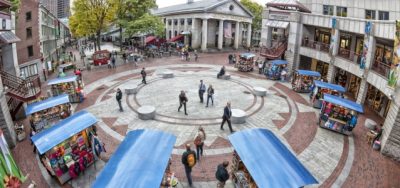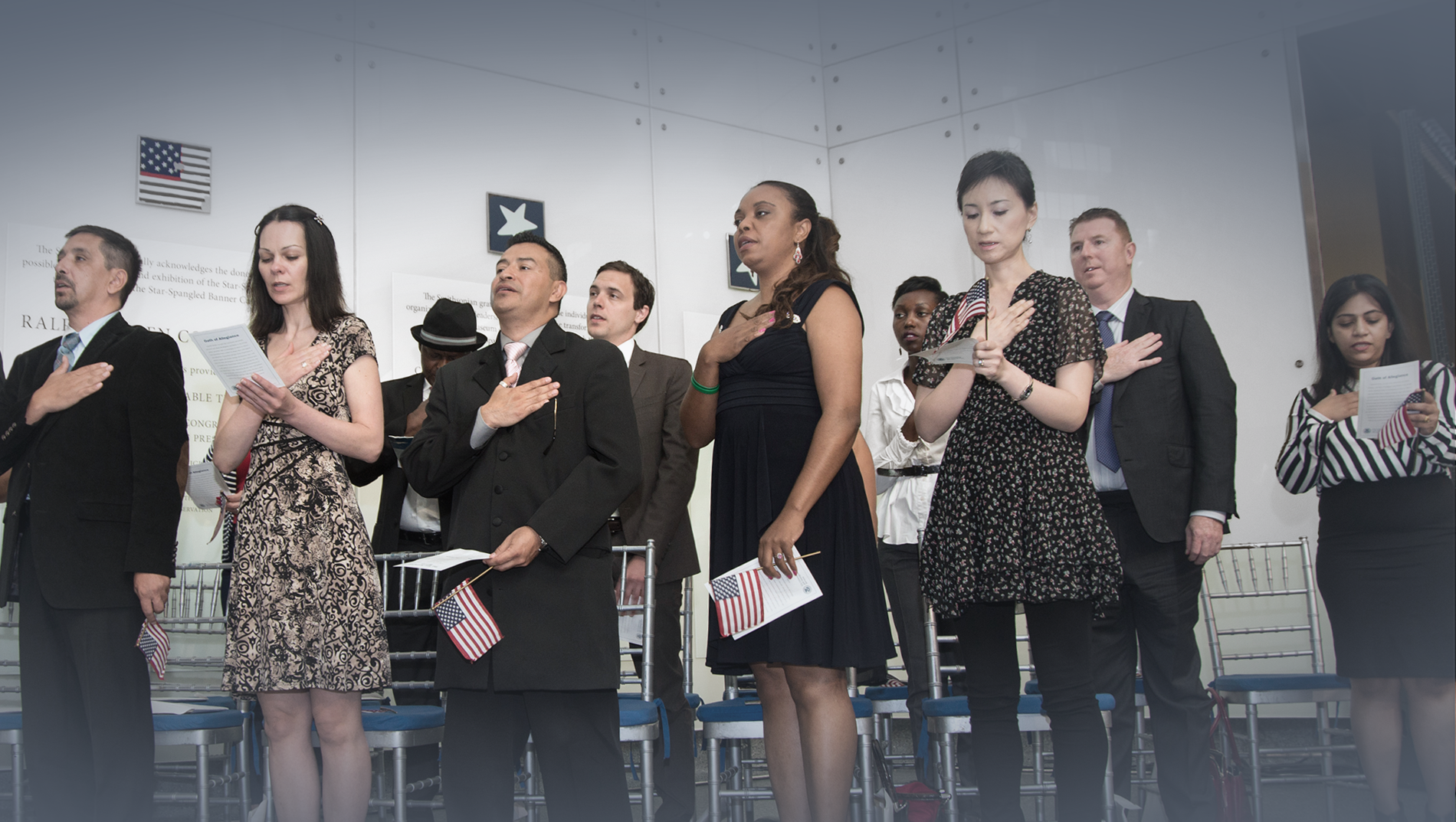Immigration 101
The U.S. immigration system is complex and can be difficult to understand. These resources provide key data points, historical information, and background on hot topics in immigration. Learn the basics about immigration. Immigration in the United States is complex and ever-evolving. Start here to understand the fundamental aspects of immigration policy, its history, and its impact on both individuals and the country at large. Learn commonly used terms about immigration law and how the U.S. immigration system is designed. Explore layered topics like how and whether immigrants can become citizens, as well as what individual protections look like under the law.
How the United States Immigration System Works
- How the Immigration System Works
- June 24, 2024
U.S. immigration law is very complex, and there is much confusion as to how it works. This fact sheet provides basic information…
Read More
Birthright Citizenship in the United States
- Birthright Citizenship
- October 16, 2024
This fact sheet explains birthright citizenship, the Fourteenth Amendment, and its interpretations. Who is…
Read More
Asylum in the United States
- Asylum
- August 27, 2014
Asylum seekers must navigate a difficult and complex process that can involve multiple government…
Read More
It’s Immigrant Entrepreneurship Month in Massachusetts!
Massachusetts is no stranger to the many benefits immigrant entrepreneurs bring to communities. From family owned restaurants and shops along small town main streets, to large Fortune 500 companies, immigrant-owned businesses make sizeable contributions to Massachusetts. And as a growing number of places around the country make efforts to attract and welcome immigrants, Massachusetts continues to expand the state’s efforts. October 15 marked the start of the third annual Massachusetts Immigrant Entrepreneurship Month, which will officially run through November 15. State groups—including the Immigrant Learning Center (ILC), the New Americans Integration Institute at the Massachusetts Immigrant and Advocacy Coalition (MIRA), and the state’s Office for Refugees and Immigrants—are leading the initiative, which recognizes the contributions of immigrant business owners and innovators to Massachusetts’ economic development. Read More

Anti-Immigrant Think Tank Beats Same Old “Tax Fraud” Drum
The Center for Immigration Studies (CIS) recently released a paper with the inflammatory title “Paying Illegals to Stay.” The paper highlights a two-year-old report from the Treasury Department’s Inspector General which enumerated what immigrant taxpayers who file their taxes using an Individual Taxpayer Identification Number (ITIN) were receiving in tax refunds through the Additional Child Tax Credit (ACTC) they claimed for their U.S.-citizen children. Read More

Nativist Group Pretends That All Unauthorized Immigrants Are Criminals
Unauthorized immigrants come to this country primarily for two reasons: to work, and to be reunited with family members who are already here. They would obviously prefer to come to this country legally, but our legal limits on immigration have for decades not matched either the realities of U.S. labor demand or the natural human desire for family unity. And so they opt to make the expensive, difficult, and dangerous decision to come without authorization because that is what they judge to be the best chance they and their families have for a better future. In other words, the overwhelming majority of unauthorized immigrants are as far from being hardened criminals as you could possibly get. They are gardeners and housekeepers; husbands and wives; parents with children. They are members of U.S. society and integral to the U.S. economy. Read More

From Coast to Coast, Immigrants Drive Local Economies
Immigrant entrepreneurship has transformed Atlanta’s northeastern suburbs along and near Buford Highway into “International Village” – an area filled with immigrant restaurants, markets, specialty stores, and other businesses. Through ventures such as Chinatown Square, Asian Square Mall, and Plaza Fiesta immigrants have “economically and socially revived an area that faced economic stagnation and population decline.” As one researcher noted, “the five-mile stretch of highway running through Chamblee, Doraville, and Norcross constitutes the greatest concentration of ethnic-owned businesses in the southeastern U.S.” Read More

Months After Passage, Anti-Immigrant Group Still Mischaracterizes Senate Bill
The immigration reform bill (S.744) that the Senate passed in June would fix our broken work visa programs for lower skilled, higher skilled, and agricultural workers; eliminate decades-long backlogs in our immigrant visa programs; increase job and wage protections for U.S. workers; and greatly increase our investment in border security. In addition, the bill would have fiscal and economic effects that would be overwhelmingly positive, according to the Congressional Budget Office (CBO). If enacted, the bill would help reduce the federal budget deficit by approximately $1 trillion over 20 years, would boost the U.S. economy as whole without negatively affecting U.S. workers, and would greatly reduce future undocumented immigration, according to the CBO. However, the Federation for American Immigration Reform (FAIR) released a report this week criticizing the bill. They claim S.744 offers an immediate “amnesty” for the undocumented, lacks specific metrics for measuring border enforcement, weakens the visa entry-exit system, and creates a “nebulous new system” that fails to protect Americans from illegal foreign workers. Read More

Immigration is a Positive Force for Economic Growth in Cities
Posters on metro buses and trains in St. Louis will now welcome you to the city in 17 different languages, one of the many initiatives begun by the St. Louis Mosaic Project to create an atmosphere that welcomes and encourages immigrants to the area. Signs in the public transit system aren’t just designed to look pretty, however, but acknowledge that for many immigrants, particularly those new to the St. Louis region, this is their primary means of going to work or school, shopping, and taking part in all the community has to offer. “The Mosaic Project says a lot about where our region is going,” St. Louis County Executive Charlie Dooley said. “We want to be more diverse and see things from different points of view.” Read More

Taking the Important Leap to Citizenship
Each year on September 17, the United States observes Constitution Day and Citizenship Day, a combined event that commemorates the anniversary of the nation’s constitution and recognizes all those who are or have become U.S. citizens. It is considered a time for Americans to reflect on the importance of the rights and responsibilities of citizenship, as well as what it means to be a U.S. citizen. However, it’s also an important time to applaud those who have worked hard to become citizens, while exploring ways to remove barriers for those who are eligible, but still haven’t taken the leap. Read More

Local Immigration Enforcement Harms Community Policing and Public Safety
Many local municipalities and law enforcement agencies are concerned that local immigration enforcement programs such as the 287(g) program, which deputize local police to perform duties of federal immigration agents, destroy the relationship between the police and the immigrant communities on whom they rely for cooperation and crime reporting. A report released this month by the Center for Immigration Studies (CIS) states that these fears are unfounded and that local immigration enforcement has no effect on cooperation with police. However, the data cited by CIS, which include crime reporting statistics and a study of the effects of the Prince William County 287(g) program, do not support these claims, and in fact suggest the opposite, that immigration enforcement by local police severely damages relationships with immigration communities and harms public safety. Read More

New Report Provides Specific Measures of Latino, Asian, and Immigrant Voters in Upcoming Elections
Following the 2012 presidential election, many Republican leaders and pundits concluded that Mitt Romney’s position on immigration hurt him with a range of voters, particularly Latinos and Asians. As a result, senior Republicans began to argue that immigration reform was not only inevitable, but was vital to the survival of the Republican Party. While this philosophy has been embraced by many national leaders, some rank-and-file congressional Republicans in districts where non-Latino white voters are still in the majority have found the argument less compelling. Read More

Stepping Up: The Impact of the Newest Immigrant, Asian, and Latino Voters
This analysis of immigration trends and the demographic composition of U.S. House districts shows that numerous congressional districts have emerging electorates who have many reasons to care deeply about immigration reform. Read More
Make a contribution
Make a direct impact on the lives of immigrants.

